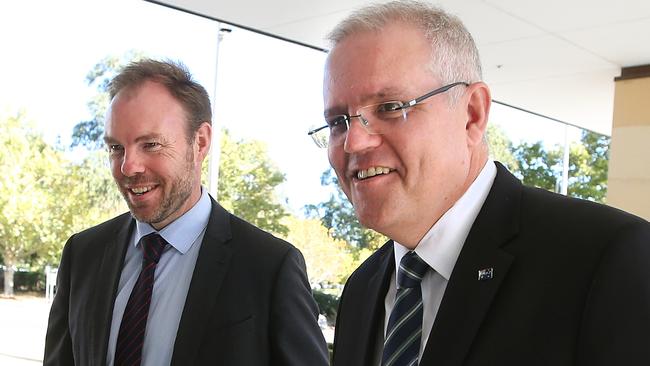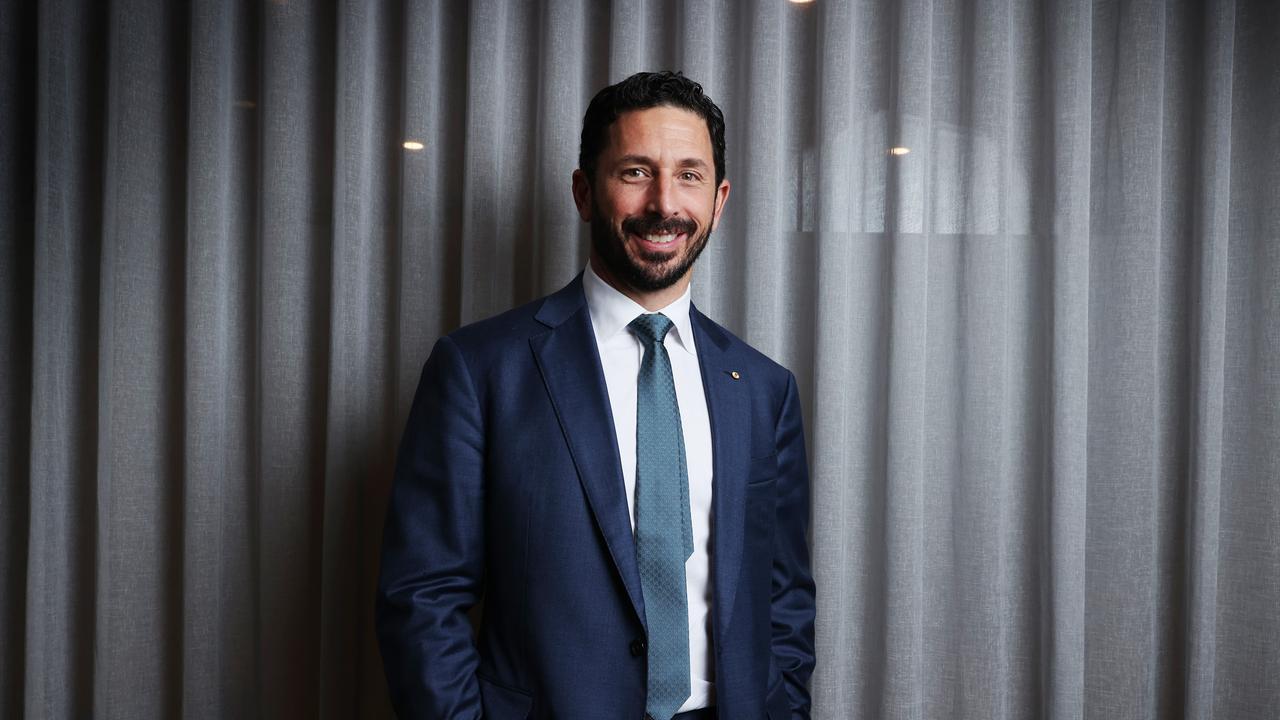
Next year the Productivity Commission is due to hand the federal government the next five-year review of productivity growth in the Australian economy.
The last report, “Shifting the Dial”, was handed to the government in 2017, and apart from a brilliant speech on tabling the report and sending the PC brass around his cabinet and the states, in reality Prime Minister Scott Morrison has done little with it.
Assuming there is no election this year — one is due next year — the question is whether Morrison will ask the PC to have another go at recommending microeconomic changes to open the economy over the medium term.
The last PC report focused on the non-traded market — health, education and planning — in part because they had escaped review and were also the fastest-growing sections of the economy, but the report is now gathering dust.
In a speech on Wednesday to CEDA, present PC boss Michael Brennan noted that “in Australia, the decade since 2010 – even excluding last year – has seen our slowest growth in GDP per capita of any decade in at least 60 years”.
He added: “Productivity growth has slowed across all developed economies in recent decades, leading to subdued growth in living standards.
“Rather than exhorting government to do more, we could ask ourselves the question: is our public debate on economic policy helping to foster a pro-productivity, pro-flexibility mindset?”
The political leadership has thrown buckets of debt at the economy and in an era of record low interest rates achieved a remarkable bounce-back from the Covid-19-induced recession.
But long-term leadership is missing amid the struggle to get the vaccine rolled out.
Brennan rightly warned about a mentality that centres on avoiding multilateral trade and forgets what got the economy to where it was: “big things including strong fiscal buffers, a reasonably flexible labour market, openness to trade, well-capitalised banks, independent monetary policy, credible public sector institutions and a targeted, but redistributive tax-transfer system.
“The real cost of government spending is measured in the labour, capital and materials used that would otherwise be employed elsewhere, such as in pursuit of some private entrepreneurial aim — innovation or investment,” he added
Brennan is skilled in macroeconomics, which is important, but so is microeconomic reform — which, as he noted, is a lot of little things backed by the right culture.
He didn’t need to say it and was too polite to say it but some federal leadership on the issue would help – some commitment to reform, as evidenced by action on PC reports and a new long-term review.
Audit action
Failed online broker Halifax has sparked ASIC’s first ever criminal case against an auditor for failing to meet audit standards.
EC Audit Pty Ltd will face up to $142,500 in fines and Robert James Evett $28,500 in fines if found guilty.
ASIC didn’t cite the reasons for the charges but separate actions have suggested the collapsed firm had pre-booked revenues.
In a statement ASIC said: “Auditors are important gatekeepers to the market and play a key role in ensuring that financial statements are accurately stated.”
The corporate cop generally takes wayward auditors to the accountant’s disciplinary board, which can suspend the individual, and this is the first time it has taken criminal action.
The matter appeared in court on Tuesday and will return to court on July 6.
Audits are key gatekeepers but the corporate plod has consistently resisted key reforms such as mandatory audit rotation to underline audit independence.
EC Audit was known as Bentleys prior to May this year, with the national firm having state affiliates and licensing the name at state level.
ASIC is still investigating the Halifax collapse but while it is yet to prove the charges, the fact it took a criminal case some 17 years after being given the power against auditors is a welcome development.
Hot property
Industrial property is the hot sector in the property market, with Covid-19’s key reform being digitisation, and confirmation of the switch to online shopping marking the trend “from shop to shed.” Riding this boom better than most is Jesse Curtis from Centuria Industrial REIT, who over four years has returned 94 per cent — against 28 per cent for the property sector.
To be fair, the trend started before Curtis joined a couple of years ago from Dexus, but deals like Blackstone’s $3.8bn sale of its industrial property business to ESR helped maintain momentum.
Centuria is 17 per cent-owned by Centuria Capital, the headstock run by John McBain and Jason Huljich, who have revived the external manager concept – which in this case meant collecting $17.4m in fees from the industrial company and a manager of managers approach.
The fees are based on assets under management with no extra pay for performance or acquisition.
The run in industrial property means the company has a market value of $2bn, against $1.6bn for the parent company.
Centuria is the single biggest pure Australian industrial property company on the bourse but some way behind Goodman Group in global terms.
The historical charge against externally managed vehicles was an obvious conflict between the management’s objectives and individual vehicles and the fee leakage to the parent company.
Amid the bull run such things tend to be forgotten.
The reality right now is industrial property is in the midst of such a run, while central business district properties are on the nose as people work out whether staff are returning to work and for how many days.
Centuria began managing the real estate investment trust in 2017 and has since grown the portfolio to 61 assets worth $2.9bn, with a 9.7-year weighted average lease expiry and 98.8 per cent occupancy. Earlier this week it was boosted by its inclusion on a FTSE global real estate index.
Epic battle begins
The full Federal Court on Wednesday will consider whether Epic Games’ case against Apple should be considered first in the US, even though it is being launched through Australian competition law.
The appeal has attracted some interest, with the ACCC attending on the side of Epic as a friend of the court and Google seeking to intervene on Apple’s side of the argument.
Justice John Middleton will be the chief judge in Sydney.
The Australian lawsuit comes as both sides await a decision of a similar claim against Apple by Epic, this time under US law, which was heard last month.
Epic, maker of the hit Fortnite computer game, is protesting in both courts against Apple’s refusal to allow mobile apps to have their own payment services so the developer can charge users directly – rather than through Apple with its surcharge of 30 per cent of app revenues.
The Australian case alleges abuse of market power.
The case is important for all actions against the big technology platforms because all agreements, like the recent media compensation settlements, are completed in the US.
The Australian Competition and Consumer Commission can bring its own actions which would be heard in Australia, but if the ABC, by way of example, wanted to protest against Google it would have to do so in California first if Apple is successful.
This applies even though the fight would be under Australian competition laws.






